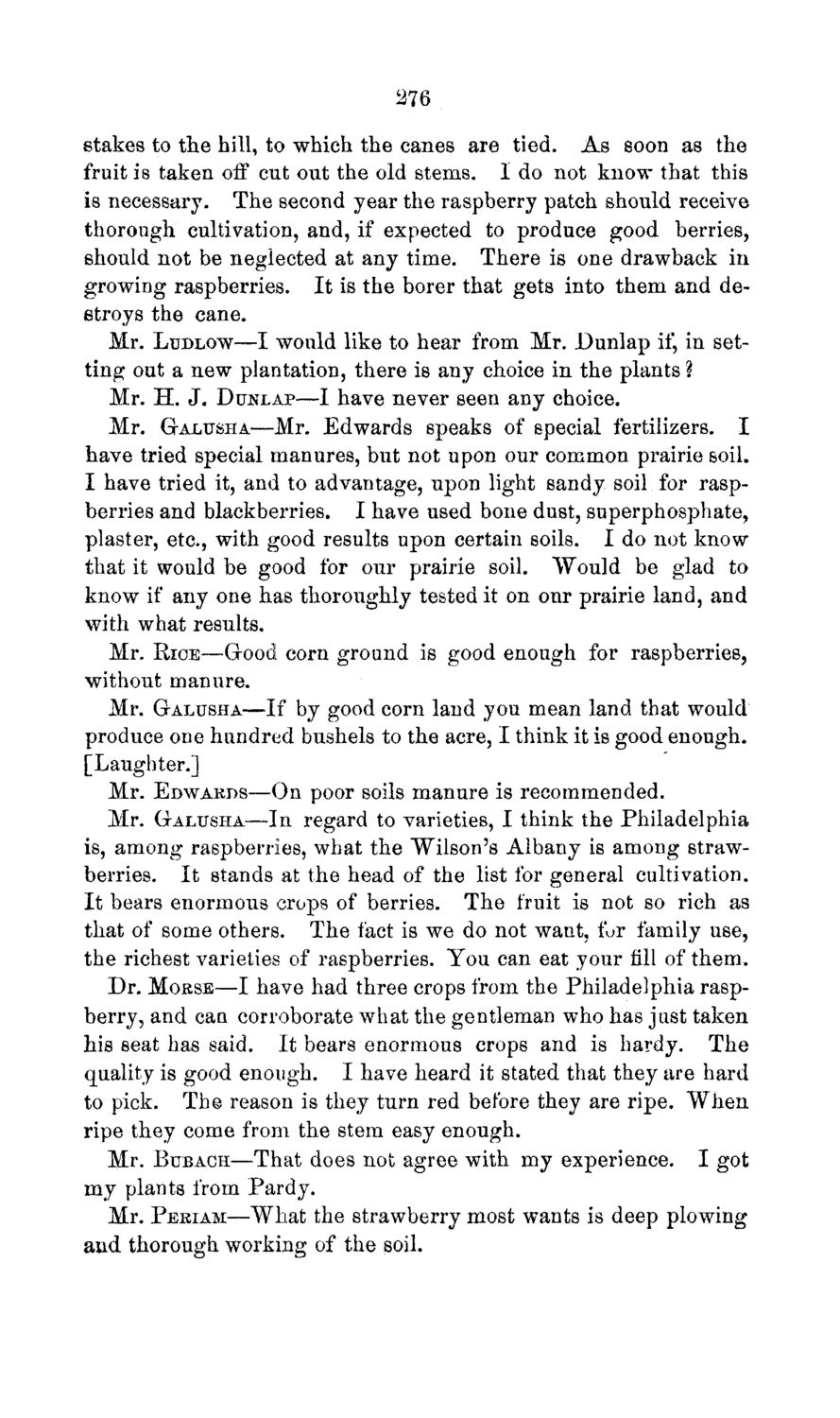| |
| |
Caption: Board of Trustees Minutes - 1869
This is a reduced-resolution page image for fast online browsing.

EXTRACTED TEXT FROM PAGE:
276 stakes to the hill, to which the canes are tied. As soon as the fruit is taken off cut out the old stems. I do not know that this is necessary. The second year the raspberry patch should receive thorough cultivation, and, if expected to produce good berries, should not be neglected at any time. There is one drawback in growing raspberries. It is the borer that gets into them and destroys the cane. Mr. LUDLOW—I would like to hear from Mr. Dunlap if, in setting out a new plantation, there is any choice in the plants ? Mr. H . J . DUNLAP—I have never seen any choice. Mr. G-ALUSHA—Mr. Edwards speaks of special fertilizers. I have tried special manures, but not upon our common prairie soil. I have tried it, and to advantage, upon light sandy soil for raspberries and blackberries. I have used bone dust, superphosphate, plaster, etc., with good results upon certain soils. I do not know that it would be good for our prairie soil. "Would be glad to know if any one has thoroughly tested it on our prairie land, and with what results. Mr. RICE—Good corn ground is good enough for raspberries, without manure. Mr. GALUSHA—If by good corn land you mean land that would produce one hundred bushels to the acre, I think it is good enough. [Laughter.] Mr. EDWARDS—On poor soils manure is recommended. Mr. GALUSHA—In regard to varieties, I think the Philadelphia is, among raspberries, what the Wilson's Albany is among strawberries. It stands at the head of the list for general cultivation. It bears enormous crops of berries. The fruit is not so rich as that of some others. The fact is we do not want, fur family use, the richest varieties of raspberries. Tou can eat your fill of them. Dr. MORSE—I have had three crops from the Philadelphia raspberry, and can corroborate what the gentleman who has just taken his seat has said. It bears enormous crops and is hardy. The quality is good enough. I have heard it stated that they are hard to pick. The reason is they turn red before they are ripe. When ripe they come from the stem easy enough. Mr. BUBACH—That does not agree with my experience. I got my plants from Pardy. Mr. PERIAM—What the strawberry most wants is deep plowing and thorough working of the soil.
| |